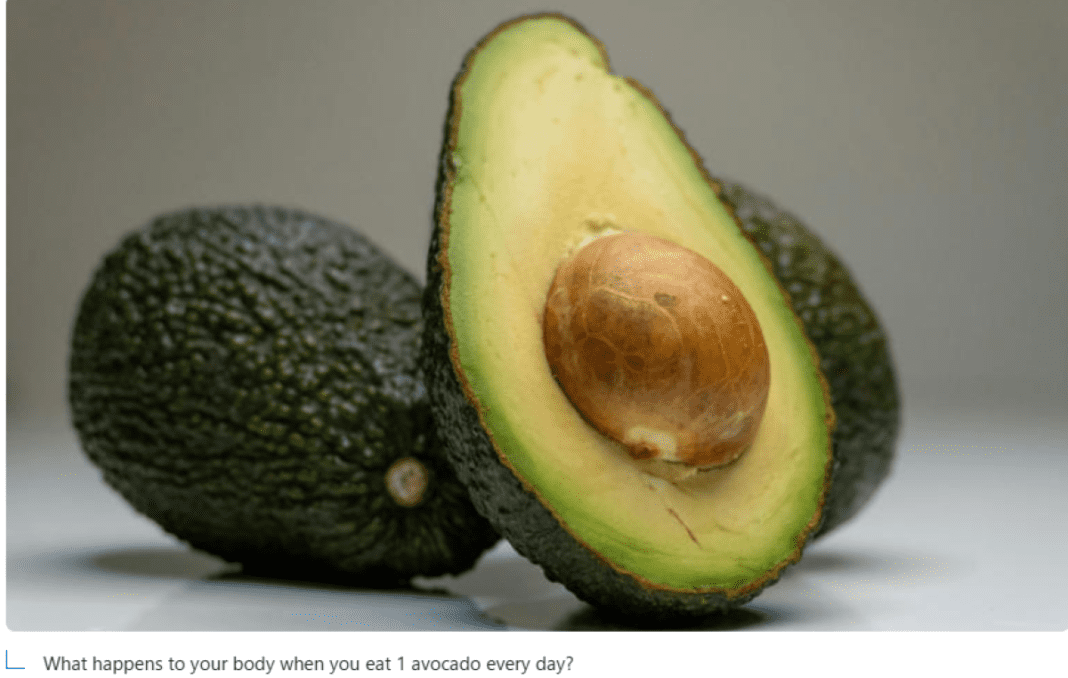Adding an avocado to your daily diet can lead to significant benefits for your gut, heart, brain, and overall health. Here’s what happens when you eat one avocado every day, supported by scientific studies and expert insights.
Nutritional Powerhouse
According to the U.S. Department of Agriculture, a single avocado contains:
- 322 calories
- 17 grams of carbohydrates
- 14 grams of fiber
- 4 grams of protein
- 30 grams of total fat (4 grams saturated fat)
- 14 milligrams of sodium
- 0 grams of sugar
This nutrient-dense profile makes avocados a valuable addition to any diet.
1. Boosts Gut Health
Avocados are an excellent source of fiber, a key nutrient for gut health. A single avocado provides nearly half the recommended daily fiber intake of 28–34 grams.
Fiber feeds the beneficial bacteria in your gut, leading to the production of short-chain fatty acids (SCFAs), which are essential for gut health. A 2021 study published in The Journal of Nutrition found that daily avocado consumption:
- Increased fiber-fermenting bacteria in the gut
- Enhanced SCFA production
- Lowered harmful bile acid levels, which are linked to gut inflammation and digestive issues
By improving gut health, avocados may also reduce diarrhea and improve nutrient absorption.
2. Supports Healthy Weight Management
Despite their high-fat content, avocados can aid in maintaining a healthy weight. A 2022 study in the Journal of the American Heart Association showed that eating an avocado daily for six months did not cause weight gain.
Additionally, a 2019 study in Nutrients suggested that avocados could help prevent weight gain, while another study in The Journal of Nutrition indicated that consuming one avocado daily may reduce visceral fat in women.
Avocados’ weight-management benefits come from:
- Fiber: Keeps you full longer, reducing overall calorie intake
- Monounsaturated fats: Particularly oleic acid, which can reduce fat storage when consumed in moderation
3. Lowers Heart Disease Risk
Avocados are loaded with heart-healthy nutrients like potassium, magnesium, fiber, folate, and monounsaturated fats. A 2022 study in the Journal of the American Heart Association found that avocado consumption reduced the risk of cardiovascular disease and coronary heart disease by 16–22%.
Swapping foods like butter, margarine, or cheese with avocados can significantly lower your risk of heart issues. Avocados also help reduce oxidized LDL cholesterol—a key factor in clogged arteries—according to a 2020 study in The Journal of Nutrition.
4. Enhances Brain Function
Avocados contain lutein, a carotenoid with antioxidant and anti-inflammatory properties that protect brain cells. A 2021 study in Frontiers in Nutrition showed that older adults who consumed avocados or guacamole had better cognitive scores, particularly in memory.
This is crucial as memory decline is often one of the first signs of neurodegenerative diseases. Regular avocado consumption may help maintain brain health and cognitive function as you age.
Conclusion
Incorporating one avocado into your daily diet can have transformative effects on your health. From supporting gut health and managing weight to protecting your heart and boosting brain function, avocados are a versatile and nutrient-rich food that deserves a spot on your plate.





